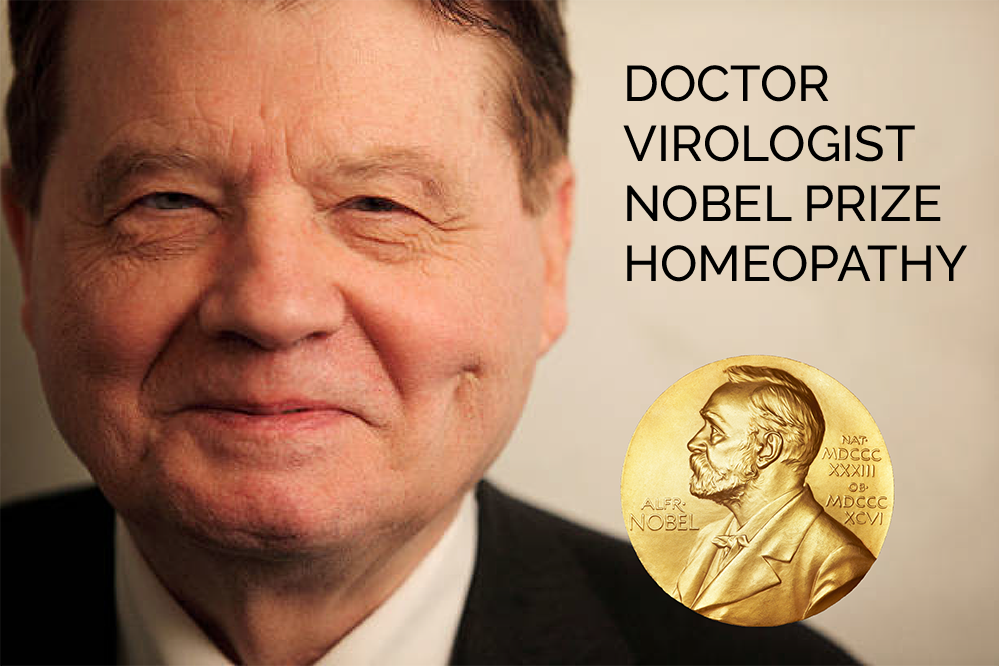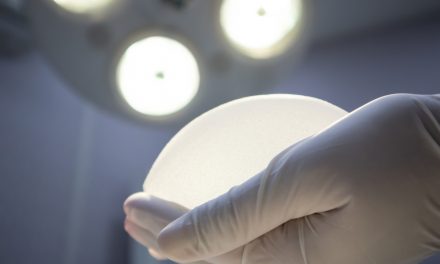(Photo Credit: Your Health Your Choice)
Dr. Luc Montagnier, the French virologist who won the Nobel Prize in 2008 for discovering the AIDS virus, has come out in support- strong support- for homeopathy. And this has surprised the scientific community.
RELATED STORY:
In an interview published in Science magazine on December 24, 2010, Montagnier, expressed support for “the often maligned and misunderstood medical specialty of homeopathic medicine. Although homeopathy has persisted for 200+ years throughout the world and has been the leading alternative treatment method used by physicians in Europe, most conventional physicians and scientists have expressed skepticism about its efficacy due to the extremely small doses of medicines used.”1
However, most clinical research that’s been done on homeopathic medicines and published in peer-review journals, show positive results. Especially in the treatment of:
- respiratory allergies
- influenza
- fibromyalgia
- rheumatoid arthritis
- childhood diarrhea
- post-surgical abdominal surgery recovery
- attention deficit disorder
- reduction in the side effects of conventional cancer treatments
And, in addition to clinical trials, “several hundred basic science studies have confirmed the biological activity of homeopathic medicines. One type of basic science trials, called in vitro studies, found 67 experiments (1/3 of them replications) and nearly 3/4 of all replications were positive.”2
Montagnier, founder and president of the World Foundation for AIDS Research and Prevention, said:
“I can’t say that homeopathy is right in everything. What I can say now is that the high dilutions (used in homeopathy) are right. High dilutions of something are not nothing. They are water structures which mimic the original molecules.” (A reference to one of the most controversial features of homeopathic medicine: sequential dilution with vigorous shaking in-between each dilution.)”3
Although it is common for modern-day scientists to assume that none of the original molecules remain in solution, Montagnier’s research (and other of many of his colleagues) has verified that electromagnetic signals of the original medicine remains in the water and has dramatic biological effects.
Also in Montagnier’s corner is Brian Josephson, Ph.D., a Nobel Prize-winning scientist who once told the New Scientist:
“Regarding your comments on claims made for homeopathy: criticisms centered around the vanishingly small number of solute molecules present in a solution after it has been repeatedly diluted are beside the point, since advocates of homeopathic remedies attribute their effects not to molecules present in the water, but to modifications of the water’s structure.
Simple-minded analysis may suggest that water, being a fluid, cannot have a structure of the kind that such a picture would demand. But cases such as that of liquid crystals, which while flowing like an ordinary fluid can maintain an ordered structure over macroscopic distances, show the limitations of such ways of thinking. There have not, to the best of my knowledge, been any refutations of homeopathy that remain valid after this particular point is taken into account.
A related topic is the phenomenon, claimed by Jacques Benveniste’s colleague Yolène Thomas and by others to be well established experimentally, known as “memory of water.” If valid, this would be of greater significance than homeopathy itself, and it attests to the limited vision of the modern scientific community that, far from hastening to test such claims, the only response has been to dismiss them out of hand.”4
RELATED STORY:
Another point that’s just as important as the fact that water does indeed have a memory is that today, far too many scientists suffer from “pathological disbelief.” “They maintain an unscientific attitude that is embodied by the statement “even if it were true I wouldn’t believe it.’”5
But why do they act that way? Perhaps because of intellectual terror from other doctors and scientists.
“It is remarkable enough that many skeptics of homeopathy actually say that there is ‘no research’ that has shows that homeopathic medicines work. Such statements are clearly false, and yet, such assertions are common on the Internet and even in some peer-review articles. Just a little bit of searching can uncover many high quality studies that have been published in highly respected medical and scientific journals, including the Lancet, BMJ, Pediatrics, Pediatric Infectious Disease Journal, Chest and many others. Although some of these same journals have also published research with negative results to homeopathy, there is simply much more research that shows a positive rather than negative effect.
Misstatements and misinformation on homeopathy are predictable because this system of medicine provides a viable and significant threat to economic interests in medicine, let alone to the very philosophy and worldview of biomedicine. It is therefore not surprising that the British Medical Association had the sheer audacity to refer to homeopathy as ‘witchcraft.’ It is quite predictable that when one goes on a witch hunt, one inevitable finds ‘witches,’ especially when there are certain benefits to demonizing a potential competitor (homeopathy plays a much larger and more competitive role in Europe than it does in the USA).”6
Because French retirement laws did not allow Montagnier (in his late 70’s in 2011) to work at public institutes (which limited his access to research funding) he took a position at Jiaotong University (known as China’s MIT) in Shanghai, China at an institute that bore his name. His work now focuses on “a new scientific movement at the crossroads of physics, biology, and medicine: the phenomenon of electromagnetic waves produced by DNA in water. He and his team will study both the theoretical basis and the possible applications in medicine.”7
RELATED STORY:
He says his team has found that DNA produces structural changes in water, which persist at very high dilutions, and which lead to resonant electromagnetic signals that are measurable. They hope these new observations will lead to treatments for chronic diseases like autism, Alzheimer’s disease, Parkinson’s disease, and multiple sclerosis.
For the full story, click here.
SOURCE:












